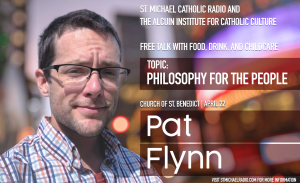The Adventure and Crisis of Marriage
Gilbert Keith Chesterton wrote, “The whole pleasure of marriage is that it is a perpetual crisis.” Nowadays, there is a new crisis in the crisis of marriage that is hardly a source of pleasure because it is an identity crisis. The challenge is to refrain from despairing over the institution of marriage by remembering, with Chestertonian optimism, that marriage cannot be destroyed. Though marriage can be called gay, it cannot make marriage any less gay (in the true sense of the word). Marriage is perpetual, even if it is a perpetual crisis, and that is something to take pleasure in. What God has enjoined, no man can put asunder. And though days are dark, Catholics must arm themselves with that joy Chesterton called, “the joy of giants, the joy without a cause.”
“Marriage is a fact,” writes G. K. Chesterton, “an actual human relation like that of motherhood, which has certain habits and loyalties, except for a few monstrous cases where it is turned to torture by insanity or sin.” The monstrous cases of marriage that Chesterton mentions have, unfortunately, become the modern cases of marriage. On June 26, 2013, the United States Supreme Court struck down the Defense of Marriage Act, legally allowing homosexual couples to receive the same benefits of married heterosexual couples. On June 26, 2015, two years later to the day, the Supreme Court ruled that it is unconstitutional for states to ban same-sex “marriage,” making the USA the 21st of the 21st century countries to legalize same-sex unions. Though acclaimed as a victory for love, the embrace of impotence in love will only render love impotent. This is one of the dangerous illusions of our time, “the illusion of familiarity” as Chesterton put it in The Everlasting Man, when perversion becomes convention. Making homosexual “marriage” legal does

